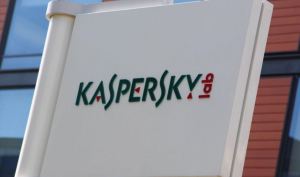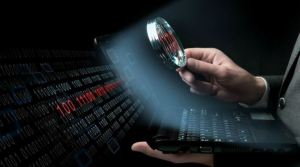nsnbc : Eugene Kaspersky, the head of the Russian cyber-security company Kaspersky Lab, said he will testify before the U.S.’ House of Representatives. His statement came a day after government agencies were ordered to stop using Kaspersky products. The company has been embroiled in “hacking and espionage allegations”. These allegations were in part supported by circumstantial evidence.
U.S. government agencies have been given one month to map their use of Kaspersky products and three months to begin their removal, reported the U.S. Department of Homeland Security (DHS) on Wednesday.
Last July the administration of President Donald Trump removed Kaspersky from the list of approved agencies’ software vendors, citing concerns Russian authorities could infiltrate U.S. government networks using Kaspersky’s anti-virus products.
The U.S. House Committee on Science, Space and Technology, on Thursday, reportedly said that it had invited Eugene Kaspersky to testify on September 27, alongside an unspecified number of U.S. government and private sector cyber experts. Kaspersky used his Twitter account to confirm that he would testify.
I have accepted invitation to testify before US House of Representatives & address allegations about KL. Hope to get expedited visa. pic.twitter.com/Z24emERmnn
— Eugene Kaspersky (@e_kaspersky) September 14, 2017
 Kaspersky, who founded the company in 1997, has denied ties to Russian security and intelligence agencies since suspicions. However, Eugene admits that he graduated from a KGB-sponsored school and worked for the Soviet Defense Ministry. Moreover, Kaspersky said he had repeatedly offered to testify before the U.S. Congress to address any questions about his firm. He also wrote an opinion piece published by Forbes in which he stated that he is willing to provide the company’s source code for an official audit. Kaspersky cited “geopolitical turbulence” as the likely reason why U.S. Homeland Security banned his company’s products from federal IT systems. “As I’ve said before, it’s not popular to be Russian right now in some countries, but we cannot change our roots, and frankly, having these roots do not make us guilty.”
Kaspersky, who founded the company in 1997, has denied ties to Russian security and intelligence agencies since suspicions. However, Eugene admits that he graduated from a KGB-sponsored school and worked for the Soviet Defense Ministry. Moreover, Kaspersky said he had repeatedly offered to testify before the U.S. Congress to address any questions about his firm. He also wrote an opinion piece published by Forbes in which he stated that he is willing to provide the company’s source code for an official audit. Kaspersky cited “geopolitical turbulence” as the likely reason why U.S. Homeland Security banned his company’s products from federal IT systems. “As I’ve said before, it’s not popular to be Russian right now in some countries, but we cannot change our roots, and frankly, having these roots do not make us guilty.”
Little Eugene’s limited hangout?
Critics of Kaspersky and skeptics would welcome the hearing and Kaspersky’s testimony – especially because Eugene’s “admission” that he studied at a “KGB-sponsored school” looks terribly like a “limited hangout”. Ironically, Kaspersky was linked to both Russian and U.S. “services” when a scandal broke in January 2017. Sergei Mikhailov, a top-cybersecurity specialist working at Russia’s Federal Security Service (FSB) was arrested in January, allegedly on suspicion of leaking information to U.S. intelligence services.
 The FSB reportedly believes that Sergei Mikhailov passed highly sensitive information on to members of the US intelligence community. This allegedly includes information about Vladimir Fomenko and his server rental company King Servers. The American company ThreatConnect, in September 2016, described King Servers as “an information nexus” that was used by hackers suspected of working for Russian state security in cyber attacks.
The FSB reportedly believes that Sergei Mikhailov passed highly sensitive information on to members of the US intelligence community. This allegedly includes information about Vladimir Fomenko and his server rental company King Servers. The American company ThreatConnect, in September 2016, described King Servers as “an information nexus” that was used by hackers suspected of working for Russian state security in cyber attacks.
A total of four individuals have been arrested in connection the case. If found guilty, Mikhailov could face charges of treason. The others who have been charged are Ruslan Stoyanov, the head of cyber crime investigations at Kaspersky Labs, and Dmitry Dokuchaev, who worked in the same FSB unit as Mikhailov. The name of the fourth person has not yet been released.
Mikhailov and the circle around him may, according to some sources be linked to circles within the hacker community Anonymous. The hacker community has gained some notoriety over the last years for leaking private emails and other information of high-profile individuals and for hacking or disabling or defacing high-profile websites including government websites.
The hacker community has also leaked information of individuals with close ties to the Kremlin. Anonymous has also campaigned against the head of State of the Democratic People’s Republic of Korea (DPRK) a.k.a. North Korea and other targets that “would seem to be targets of interest” for US intelligence services.
In December 2013 the group leaked an advance copy of Russian President Vladimir Putin’s New year’s speech. In May 2014 it leaked emails revealing the political work of a company owned by Yevgeny Prigozhin including purported evidence that he sponsors Russia’s alleged “Internet Troll Factory.”
In 2014, the group released correspondence between Eurasianist philosopher Alexander Dugin, the head of Tsargrad TV, and Konstantin Malofeyev, the TV channel’s board chairman. In 2015, the “anonymous” hackers published emails and text messages stolen from Timur Prokopenko, a Kremlin official.
Prokopenko had allegedly been tasked with stymying the anti-Putin opposition. Also allegedly targeted were Alexander Zharkov, the head of Russia’s State censorship organization, as well as Natalya Timakova, Prime Minister Dmitry Medvedev’s press secretary.
In 2016 the group also targeted Dmitry Kiselyov, known by the opposition and abroad by the nickname “the Kremlin’s chief propagandist,” as well as Aram Gabrelyanov, the owner of several pro-Kremlin tabloids and news outlets.
Non of Anonymous leaks resulted in indictments or criminal cases. The leaked content was generally more embarrassing than incriminating and provided “political munition” rather than material that could lead to the disclosure of criminal activities. If anything, the leaks would help understand oligarchical structures and machinations and violate the right to privacy of the targeted individuals.
However, there has been widespread speculation how Anonymous could succeed at getting access to materials that in some cases were highly secured, while they in other cases were on unprotected servers. It was the group’s capacity to access secured data that led many to believe that it had government backing or links to intelligence services. Others speculated that a group like Anonymous, due to its very nature and the nature of its activities could easily be infiltrated and used / abused by members of intelligence communities from any number of countries.
Whether or not the arrest of FSB top-cyber security expert Sergei Mikhailov, of Ruslan Stoyanov, the head of cyber crime investigations at Kaspersky Labs, and Dmitry Dokuchaev, who worked in the same FSB unit as Mikhailov, plus the mysterious person whose name has not been released can shed more light on whether Russia was a target, a source, or both remains to be seen. Maybe “someone” at “Anonymous” knows, and maybe some at Anonymous don’t know. It also remains to be see whether the charges against the four will stick.
F/AK – nsnbc 15.09.2017
Source Article from https://nsnbc.me/2017/09/15/kaspersky-lab-chief-to-testify-before-u-s-congress/
Related posts:
Views: 0
 RSS Feed
RSS Feed

















 September 15th, 2017
September 15th, 2017  Awake Goy
Awake Goy 












 Posted in
Posted in  Tags:
Tags: 
















